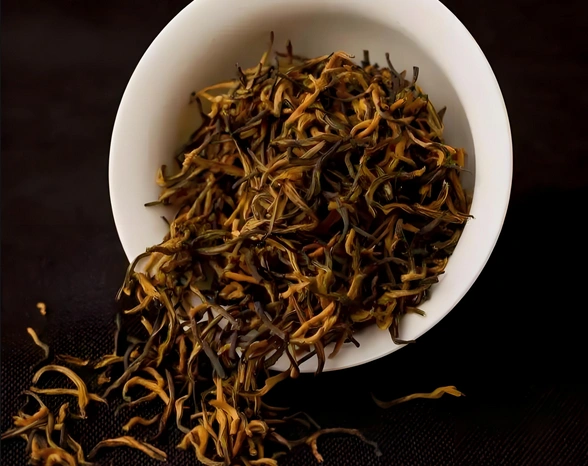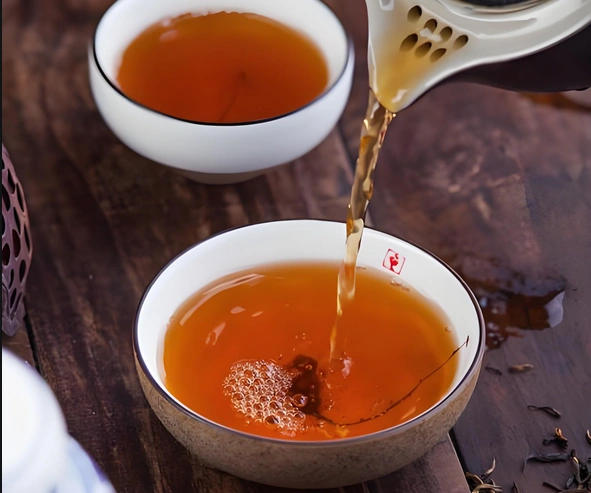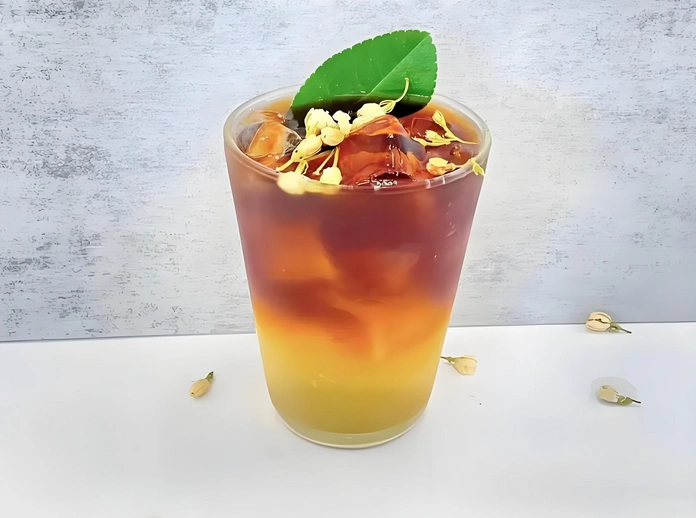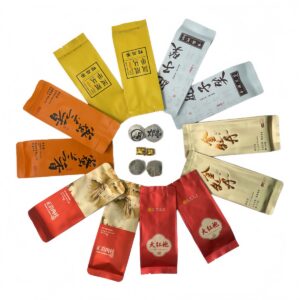Black tea for afternoon tea is more than a simple pick-me-up—it’s an invitation to pause, savor, and renew. Picture the soft glow of the late afternoon sun, a delicate teacup warming your palms, and the rich aroma of malt and honey weaving through the air. In those few precious moments, the world slows down. Whether you’re steeping a robust Assam or a fragrant Darjeeling, choosing black tea for afternoon tea transforms an everyday break into a luxurious ritual.
In this guide, you’ll discover the best varieties for iced and milk tea, learn how black tea for afternoon tea can boost office productivity, explore the science-backed health benefits, master perfect brewing techniques, and even find ideal snack pairings. Get ready to elevate your afternoons—one sumptuous sip at a time.
Tradition of Afternoon Tea
A Ritual of Connection
The afternoon tea ritual dates back to 1840s England, when Anna, the Duchess of Bedford, first introduced a light meal between lunch and dinner to curb mid-afternoon hunger. What began as a personal comfort quickly became a social event, complete with delicate sandwiches, scones, and, of course, black tea for afternoon tea. Today, this tradition spans continents. In modern China, afternoon tea marries Eastern grace with Western formality—porcelain teapots meet tiered cake stands, and Jasmine tea often shares the spotlight with robust black tea blends.
Why Black Tea?
Unlike green or white teas, black tea undergoes full oxidation, yielding a bold flavor with toasty, caramelized notes. That depth of taste stands up beautifully to milk, sugar, or ice—making black tea for afternoon tea both versatile and indulgent. The characteristic amber liquor also lends any table setting an air of elegance, beckoning guests to slow down and connect.

Best Black Tea for Iced & Milk Tea
Black Tea for Iced Tea
When the sun hangs heavy in the sky, a chilled glass of black tea for iced tea can feel like a cool breeze in a cup. Top picks include:
- Assam CTC: Robust, malty, and brisk—perfect for brewing double-strength and serving over ice.
- Ceylon Orange Pekoe: Bright citrus notes that dance on the tongue; add a slice of lemon or sprig of mint for extra vibrancy.
- Yunnan Gold: Subtly sweet with a hint of spice—ideal for those who crave a more nuanced iced blend.
Pro tip: For crystal-clear iced tea without dilution, brew strong, cool rapidly, then strain into an ice-filled pitcher. Garnish with fresh citrus slices, edible flowers, or berry sprigs to delight both eye and palate.
Best Black Tea for Milk Tea
If velvety richness is your calling card, you’ll love best black tea for milk tea options such as:
- Assam TGFOP: Full-bodied and malty, this tea creates a creamy, harmonious blend when mixed with whole milk or oat milk.
- Keemun Gong Fu: Smoky-sweet undertones that deepen with each sip—pair with a drizzle of honey or a dash of vanilla extract.
- English Breakfast: A classic for a reason: bright, balanced, and utterly comforting with a splash of milk.
For a café-style treat at home, steep 3 grams of tea per 200 ml water for 4–5 minutes, then swirl in warmed milk and a teaspoon of sweetener. Serve in a tall glass with a metal straw for that luxe milk tea experience.
Black Tea for Office Workers
Energize Without the Jitters
Long hours at the desk demand clarity and calm—qualities found in every cup of black tea for afternoon tea. With approximately 40–60 mg of caffeine per cup (about half a cup of coffee), black tea delivers a gentle lift without the nervous buzz. Incorporate black tea for office workers into your routine by:
- Scheduled Steeps: Break every 90 minutes for a 5-minute tea pause.
- Mindful Sips: Focus on the aroma, color, and taste to reset mental fatigue.
- Hydration Boost: Balance a mug of tea with a glass of water to maintain overall fluid intake.
Boosting Productivity
Research shows that the amino acid L‑theanine—abundant in black tea—promotes alpha-wave activity in the brain, fostering a state of calm alertness. A 2008 study found improved cognitive performance and reaction time among regular black tea drinkers Bryan2008. Next time you tackle that report or join a late-afternoon Zoom call, let black tea for afternoon tea be your secret productivity weapon.
Health Benefits of Black Tea
Antioxidants and Heart Health
Rich in flavonoids and polyphenols, black tea for afternoon tea acts as a potent antioxidant, neutralizing free radicals and supporting cardiovascular wellness. A landmark 2014 meta-analysis linked regular black tea consumption to lower LDL (“bad”) cholesterol levels and improved arterial function Sharma2014. Sipping tea isn’t just a pleasure—it’s a heart-happy habit.
Mental Clarity and Stress Reduction
Beyond caffeine, black tea’s unique blend of bioactive compounds—including theanine and flavonoids—helps modulate stress hormones. In one randomized trial, participants who drank black tea after a stress-inducing task exhibited lower cortisol levels compared to control groups, suggesting that black tea for afternoon tea calms both mind and body .

Tea & Snack Pairings
Savory Delights
- Cucumber Sandwiches: Light, crisp, and cool—pair with a delicate Darjeeling-black tea blend.
- Smoked Salmon Blinis: Smoked fish richness meets malty Assam for a balanced flavor profile.
- Wasabi Peas: For a modern twist, the heat of wasabi offsets the smooth tannins of black tea.
Sweet Indulgences
- Lemon Madeleines: Citrus brightness amplifies the brisk notes of Ceylon.
- Chocolate-Dipped Shortbread: Buttery sweetness meets the smokiness of Keemun.
- Red Bean Mochi: A nod to East–West fusion— the chewy texture and mild sweetness complement full-bodied black tea.
Selecting Quality Leaves & Storage
Choosing the Best
Look for whole, unbroken leaves—large, curled leaves indicate traditional orthodox processing, while uniform granules (CTC) promise bold strength. Seek out single-origin labels to explore regional terroir, or experiment with signature blends from reputable tea estates.
Proper Storage
- Airtight Containers: Shield leaves from oxygen, moisture, and odors.
- Cool, Dark Place: Avoid direct sunlight and temperature fluctuations.
- Use Within Six Months: For optimal flavor and aromatic intensity.
Brewing Tips for Perfect Black Tea
Steeping Time & Temperature
- Temperature: 95–100 °C (just off the boil).
- Leaf Ratio: 2 g (1 heaped teaspoon) per 240 ml water.
- Time: 3–5 minutes—shorter for lighter taste; longer for bolder brew.
Special Techniques
Iced Tea Mastery
- Double-Strength Infusion: Use twice the leaves for the same time.
- Chill Fast: Pour into an ice-filled vessel.
- Garnish Boldly: Citrus wheels, herb sprigs, or berry compotes.
Café-Style Milk Tea
- Robust Base: Steep 3–4 g leaves in 200 ml water.
- Creamy Finish: Add 30–50 ml warmed milk.
- Texture & Sweetness: Froth milk for microfoam; sweeten with honey or syrup.

🔗 To learn more about how to make tea, check out Tanbiwencha’s YouTube video explaining how to make tea.
Conclusion
Choosing black tea for afternoon tea is an act of self-care—a sensory indulgence that nourishes body and soul. From invigorating iced blends to creamy milk teas, from productivity-enhancing office sips to heart-healthy antioxidant boosts, black tea offers endless ways to enrich your afternoons. So steep your favorite leaves, set aside the next half hour, and let the ritual of black tea for afternoon tea transport you to a world of calm elegance and delicious discovery.



